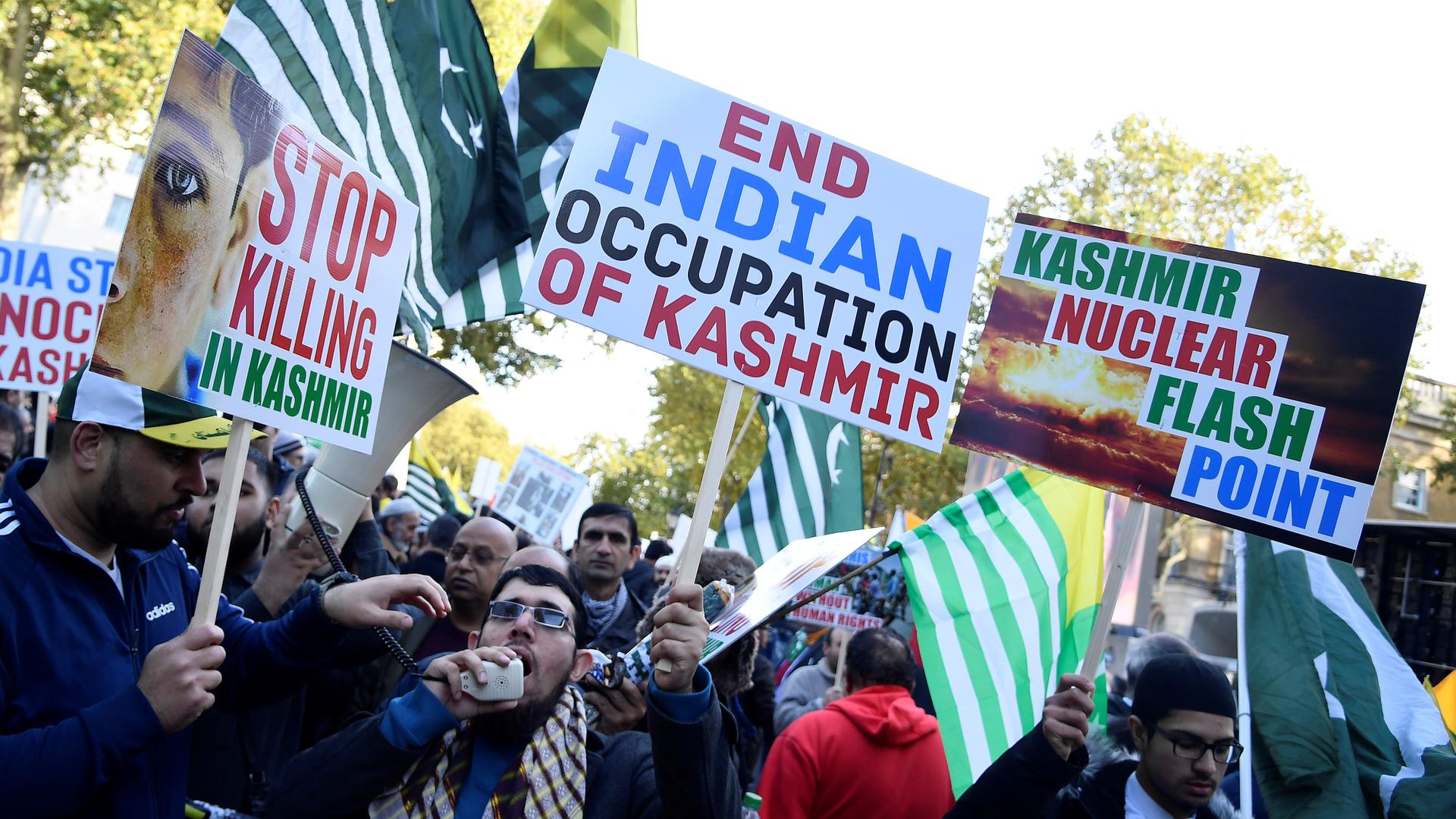India inadvertently managed to internationalise an issue that neither Pakistan nor activists were able to for decades.
When New Delhi suddenly and without warning revoked Kashmir’s semi-autonomous status on August 5, 2019, the Indian government succeeded in doing what human rights activists have failed to do for the preceding seven decades. They plastered the plight of the disputed territory’s 8 million residents on the front page of every major newspaper in the world.
Kashmir’s absence from global political discourse is best illustrated in the way in which US President Barack Obama, a leader who pontificated on the importance of international and human rights law, mentioned Kashmir only once during his eight years in office. For much of the world, the territorial dispute remained out of sight and out of the news.
Kashmir’s status as a forgotten catastrophe changed suddenly 12 months ago, however, when the Narendra Modi led government in Delhi stripped the territory of its semi-autonomous status, which had been protected by Article 370 of the Indian Constitution.
For the first time in living memory, a giant share of the international community was not only learning about the scale and depravity of Indian military’s human rights violations, but also Kashmir’s plea for a right to determine its own future, as promised by the United Nations under Resolution 47 in 1948.
The democratic world became further horrified throughout August and September, as Indian security forces began arresting and imprisoning Kashmir’s political leaders, journalists and human rights activists, while at the same time deploying thousands of more troops to the territory.
Curfews, military checkpoints, and a total shutdown of the internet and mobile phone communications for the proceeding seven months all served as a reminder of India’s repressive rule over a people who do not wish to be occupied.
Global backlash against India’s anti-democratic move in Kashmir suggested New Delhi had overreached, miscalculated and handed Pakistan a massive public relations gift.
“Up to now, Pakistan has largely failed to sell its case to the world,” wrote Michael Kugelman in an op-ed for Foreign Policy a year ago. “Pakistan’s image problems have left India winning the PR war. Indeed, many protestors who might rally for Tibet or Palestine don’t go out of their way to mobilise for Kashmir. But as India’s move spurs press coverage worldwide, Islamabad has its greatest opportunity in years to internationalise the dispute.”
In a powerful and emotional speech before the United Nations on 27 September 2019, Pakistan Prime Minister Imran Khan warned of a “bloodbath” in Kashmir, arguing the cruel and repressive nature of life under occupation would come back to haunt India.
“Would I want to live like that?” asked Mr. Khan. “I would pick up a gun.”
Unfortunately, Mr. Khan’s pleas to internationalise the dispute fell on deaf ears, particularly among leaders of Muslim majority countries, with Saudi Arabia and UAE even expressing their tacit or implicit support for India’s move in Kashmir, out of fear of upsetting one of the Arab Gulf’s largest trading partners.
By February and March of this year, the coronavirus pandemic struck and in an instant Kashmir was once again wiped from the international community’s consciousness, providing New Delhi all the diplomatic cover it needed to continue with its Hindu nationalist settler-colonial project in the disputed territory.
On April 1, the Indian government announced it would grant domicile rights for Indian citizens as part of its naked strategy to change the demography in Kashmir, granting property ownership and employment rights for non-Kashmiri residents.
When I spoke with Mr. Sardar Masood Khan, the President of Pakistan Administered Kashmir, he described India’s new domicile laws as a “move to disenfranchise and dispossess the people of Jammu and Kashmir, and displace them, ultimately.”
According to the government, more than 25,000 Indian citizens have been granted domicile certificates in the past eight weeks, with Indian military personnel counting among the biggest share of recipients, mirroring the way in which Israel colonised the Palestinian West Bank by flooding the territory with Israeli soldiers and their families in the 1970s.
Mr Khan said India is also taking advantage of the pandemic by “accelerating its targeting of Kashmiri youths in cordon and search operations,” or what Kashmiri call ‘fake encounters’ or ‘staged encounters,’ adding that the “past month has been very bloody for the Kashmiri youths.”
With 18,000 known Covid-19 cases and more than 300 deaths, the Indian military lockdown has further exacerbated the effects of the pandemic by denying Kashmir’s residents access to critical information about the virus and healthcare, with one investigation finding that it takes more than one hour to download international recommendations and government guidelines for Covis-19 patients in intensive care, as a result of the Indian government’s deliberate slowing of Internet speeds.
“This internet shutdown is a human rights violation,” Irfan Mehraj, a researcher at the Jammu Kashmir Coalition of Civil Society, told Buzzfeed News. “It’s to break the will of the Kashmiri people.”
Ultimately, life for Indian Administered Kashmir’s 8 million residents has become materially and measurably worse in the past 12 months, with the international community again losing interest in their plight, and New Delhi accelerating its project to transform the territory’s demography and identity.
As such, “we are moving towards a human rights apocalypse in the Indian-occupied Jammu and Kashmir,” warns Mr. Khan.
Author: CJ Werleman
CJ Werleman is a journalist, author, and analyst on conflict and terrorism.
Source










Discussion about this post